
Author: Public Record Office Victoria
The world was in its second year of war in 1916. Despite all the upheaval it was still very much business as usual in Ballarat and everyday events of life in a vibrant community still went on regardless. Services still had to be provided, laws maintained and the future and wellbeing of the community considered.
The following selection of records are part of the Ballarat Archives Centre collection, and are drawn from inward and outward correspondence, mayoral reports and minutes of the City of Ballarat and the Town of Ballarat East. They give a view of some aspects of the life and times in Ballarat in 1916.
Still in the dark in 1916
Electricity first came to Ballarat in 1894 however in 1916 many streets, homes and business premises were still lit by candles, oil and gas lamps. The electrification of the city required a network of infrastructure enabling the system to be established consistently and progress was slow to spread throughout the landscape, it would take many more years to achieve a fully electrified city.
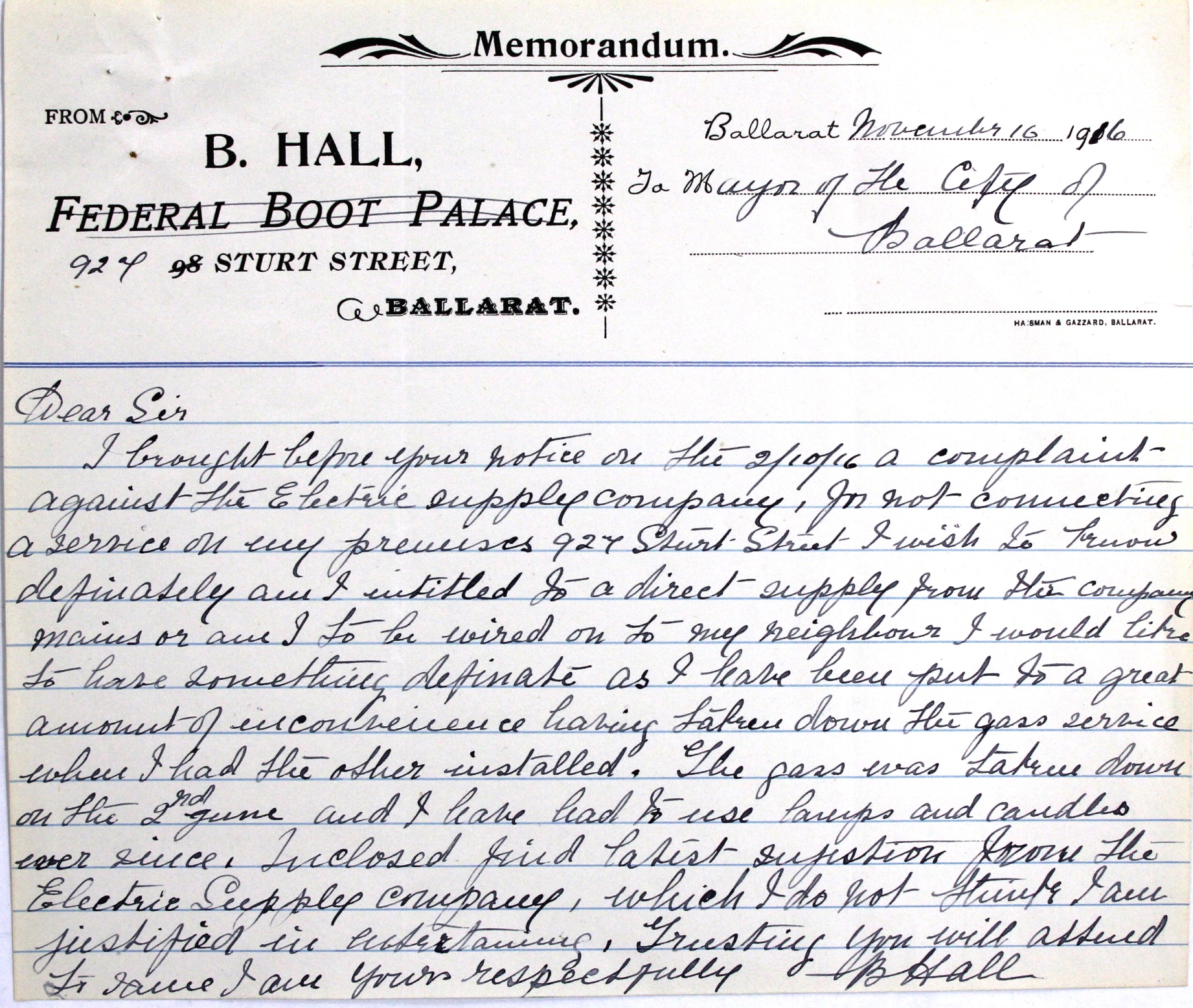
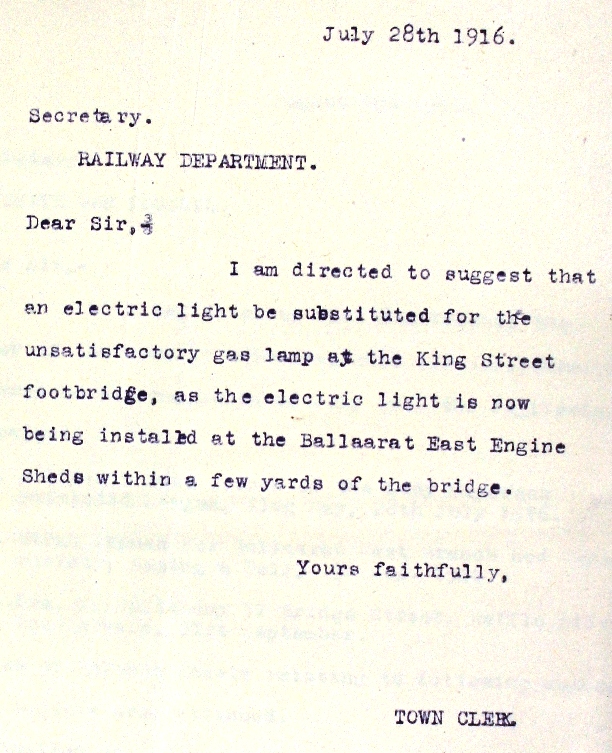
First Flying School in Australia!
The aeroplane was still a new technology in 1916 and very much a novelty to both man and beast. Forward thinking gentlemen of the Ballarat community were ever ready to pounce on any new and innovative enterprise that could benefit Ballarat as seen in this correspondence.
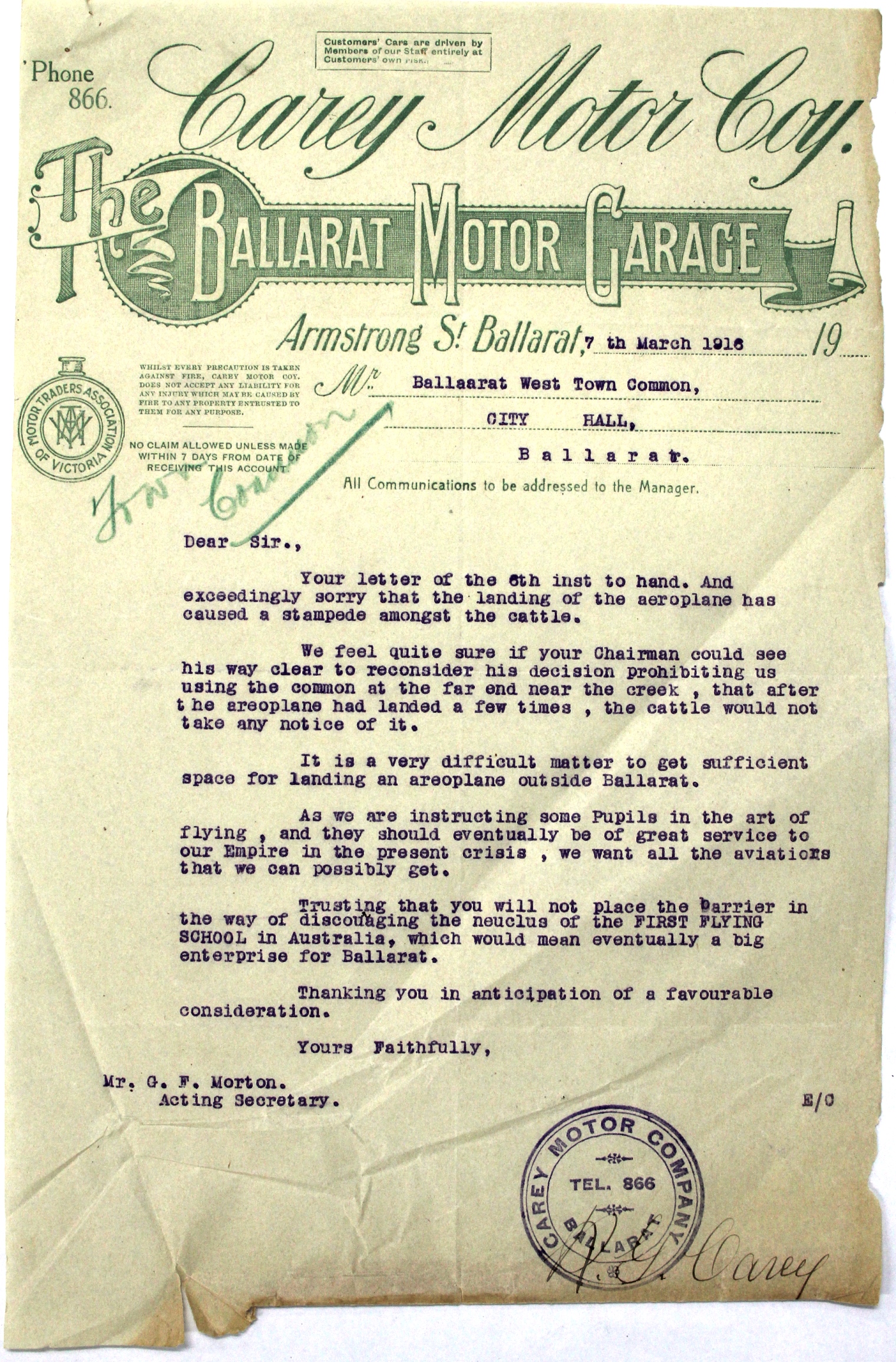
Factory Day
Mining in Ballarat was no longer the main source of employment for the workforce in 1916 and new industries were critical for the survival of the city. In an endeavour to showcase and promote locally manufactured goods, Factory Day was an event organised by Ballarat luminaries and business men in an effort to attract greater enterprise and patronage to the district, thereby providing further opportunities for employment and industry for the community.
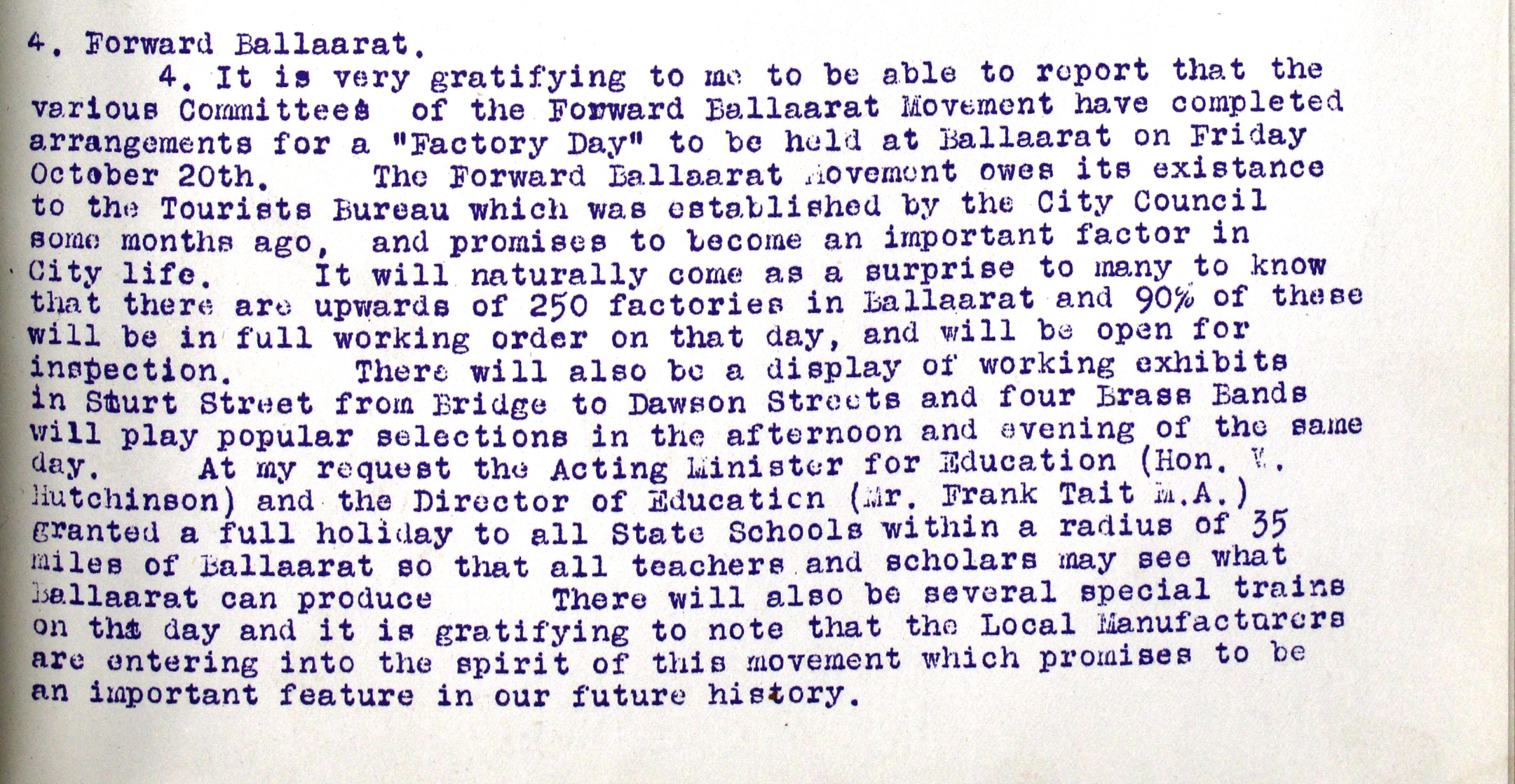
Women in uniform
For many years Ballarat council had been lobbied by various community groups to employ police women in Ballarat. The council made movements in this direction as seen in this request forwarded to the Town Clerk of the City of Sydney to gather information and guidance from their municipal counterparts. New South Wales and South Australia were the first states to employ women in this role in 1915. Women first made an appearance in the Victorian police force in Melbourne in 1917. It wasn’t until 1949 that Ballarat received an auxiliary police woman and then finally in 1950 the first fully sworn police woman was added to their ranks.
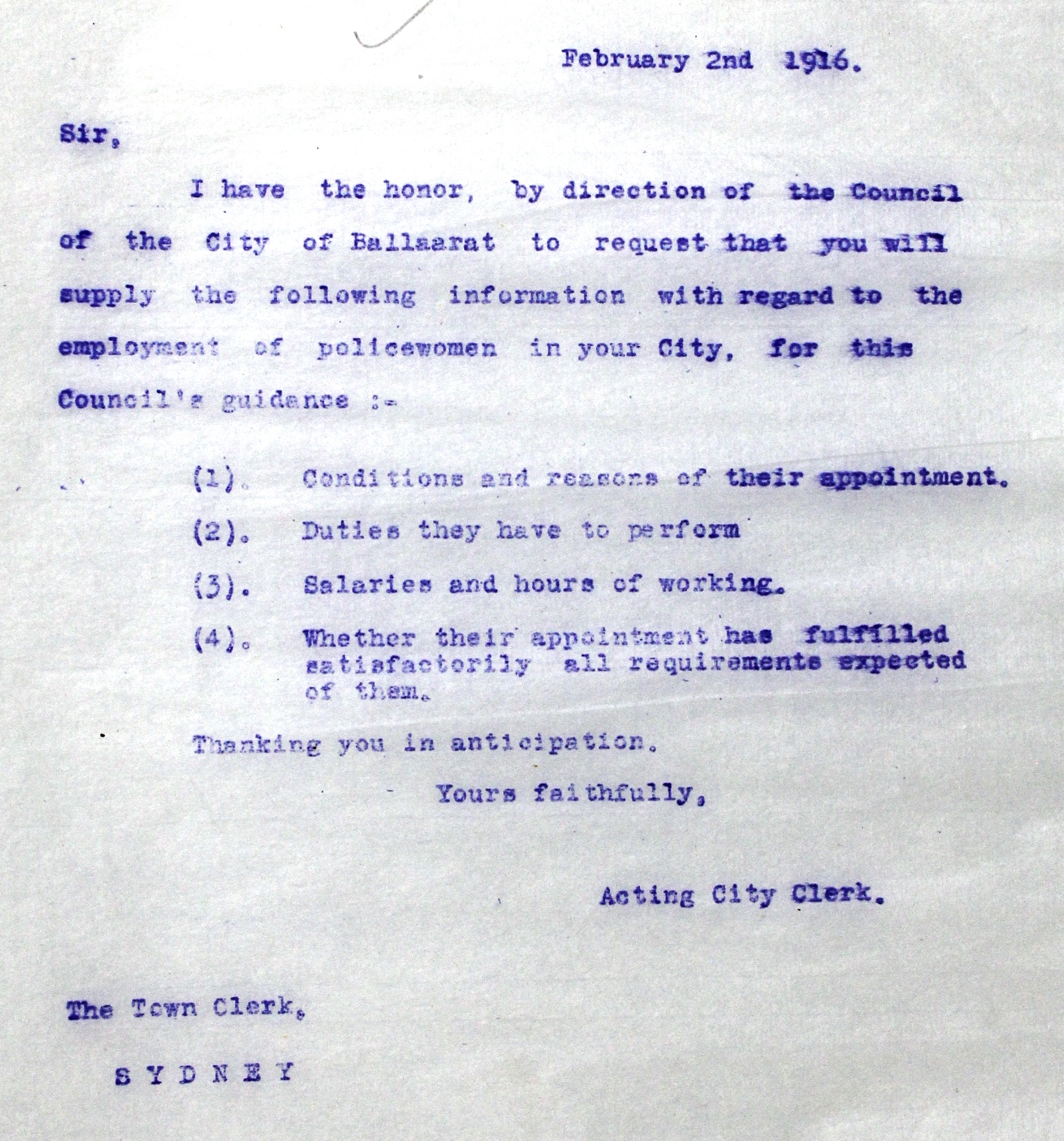
It’s a hard life in 1916
Hardship was ever present for many people in 1916 with minimal welfare which was stretched to breaking point. Women and children were particularly affected by poverty and hardship as husbands and fathers left the family home to go to war leaving behind loved ones with little means of support.
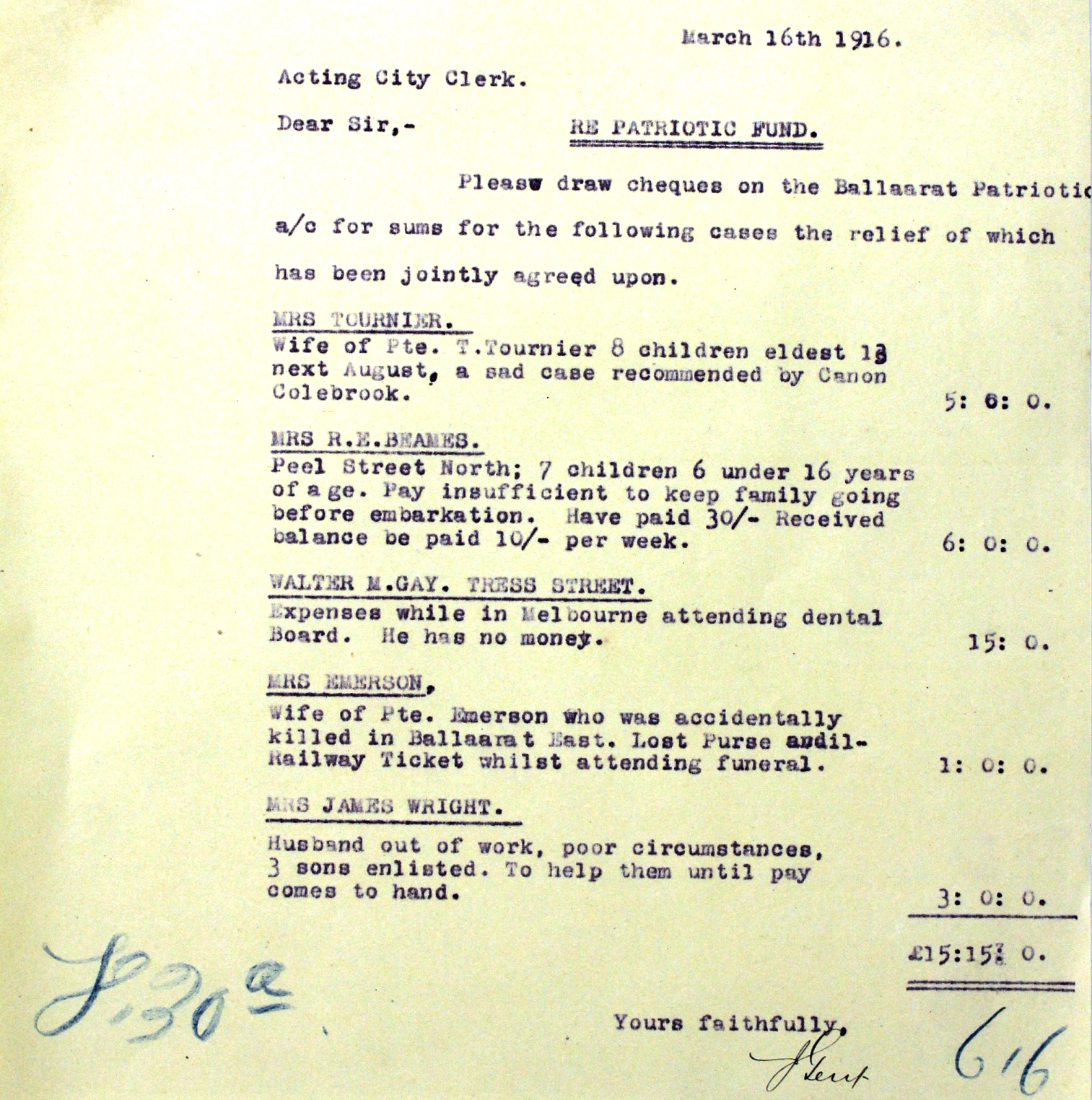
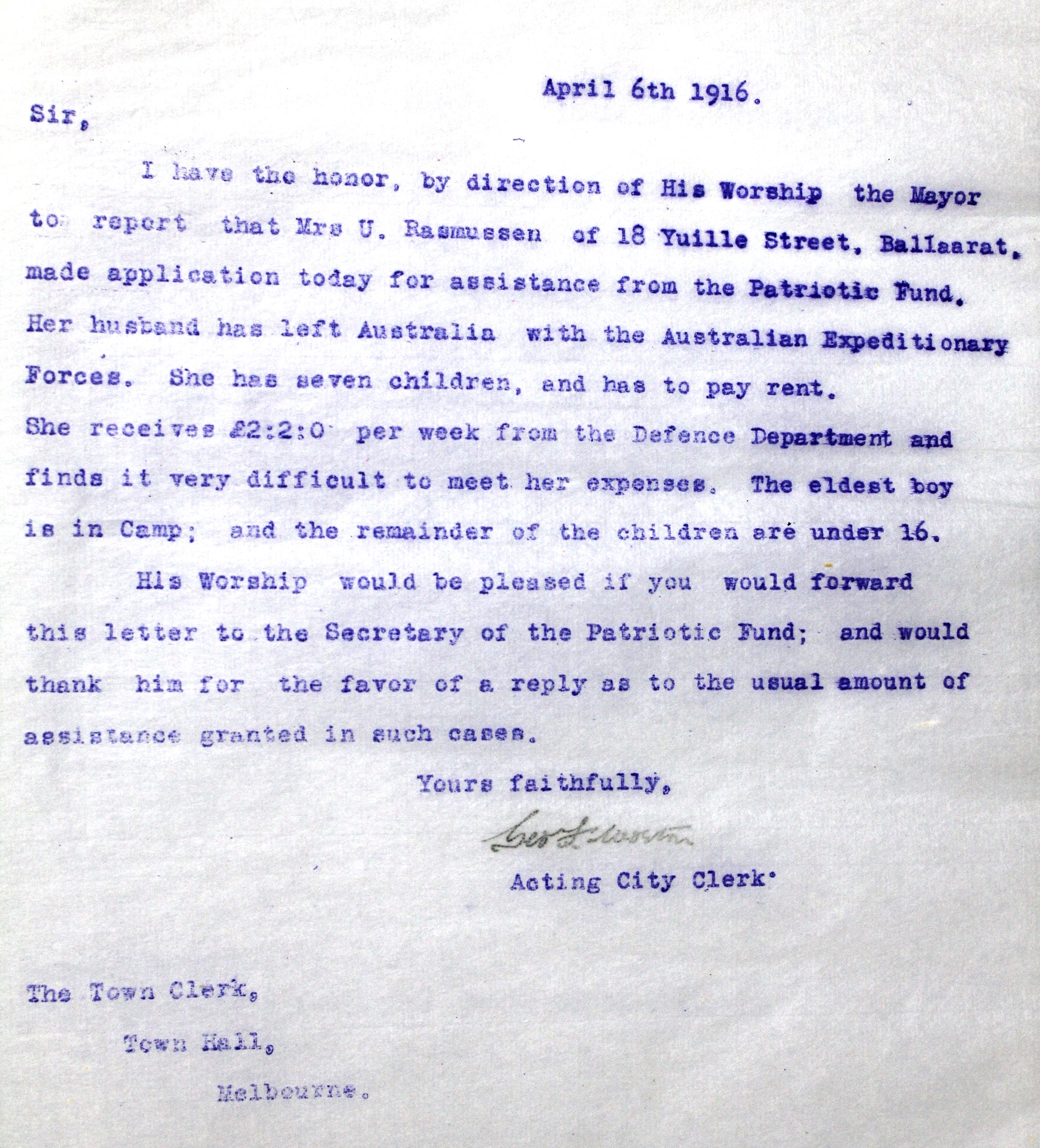
A plaintive request for assistance
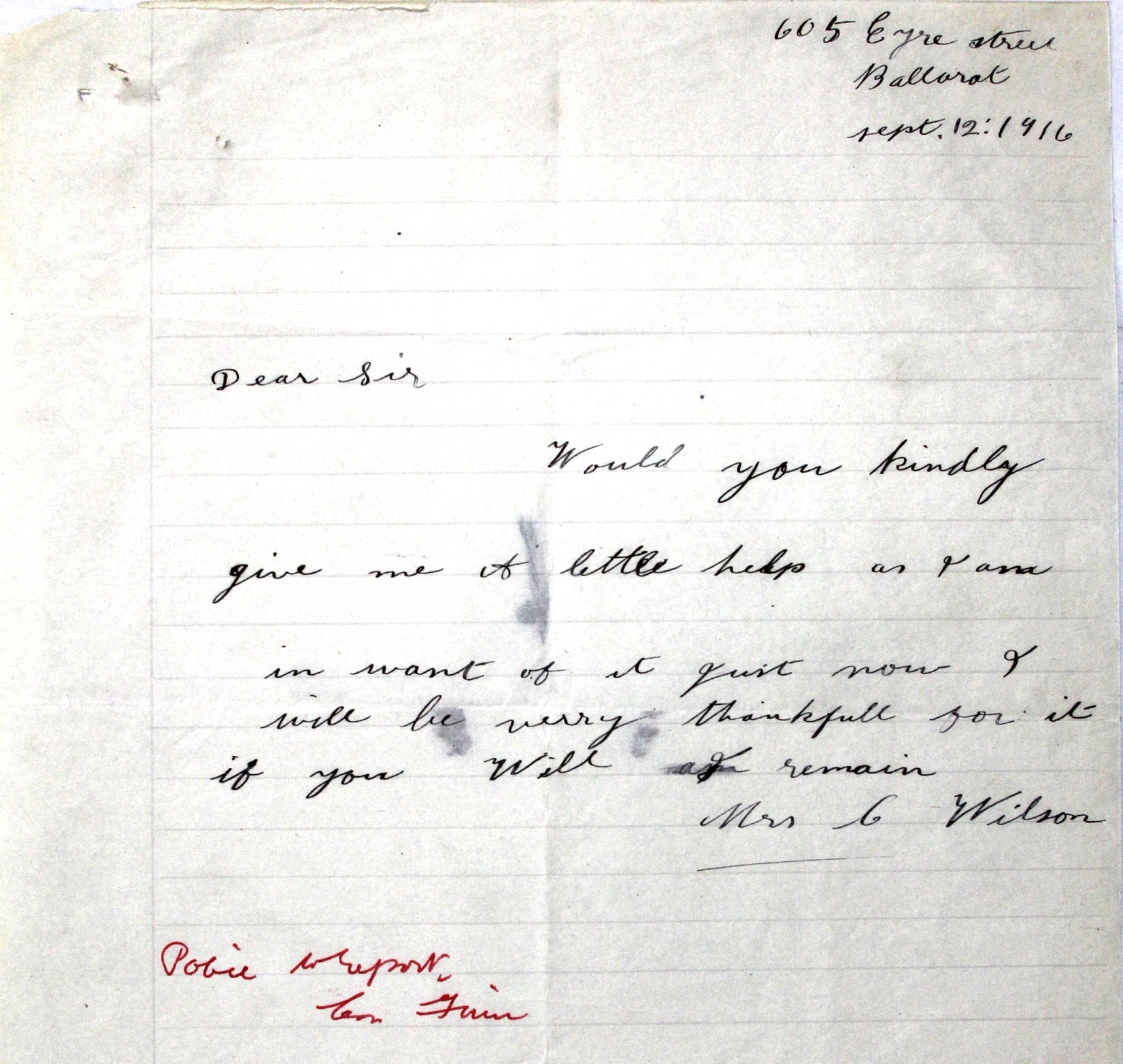
Times were tough even if you were lucky enough to have a job in 1916. This petition signed by municipal employees of the City of Ballarat for a pay increase of one shilling a day highlights the difficulties of trying to make ends meet. The council was sympathetic to the request and after careful consideration subsequently granted the workers a 6 pence a day pay increase which was gratefully accepted.
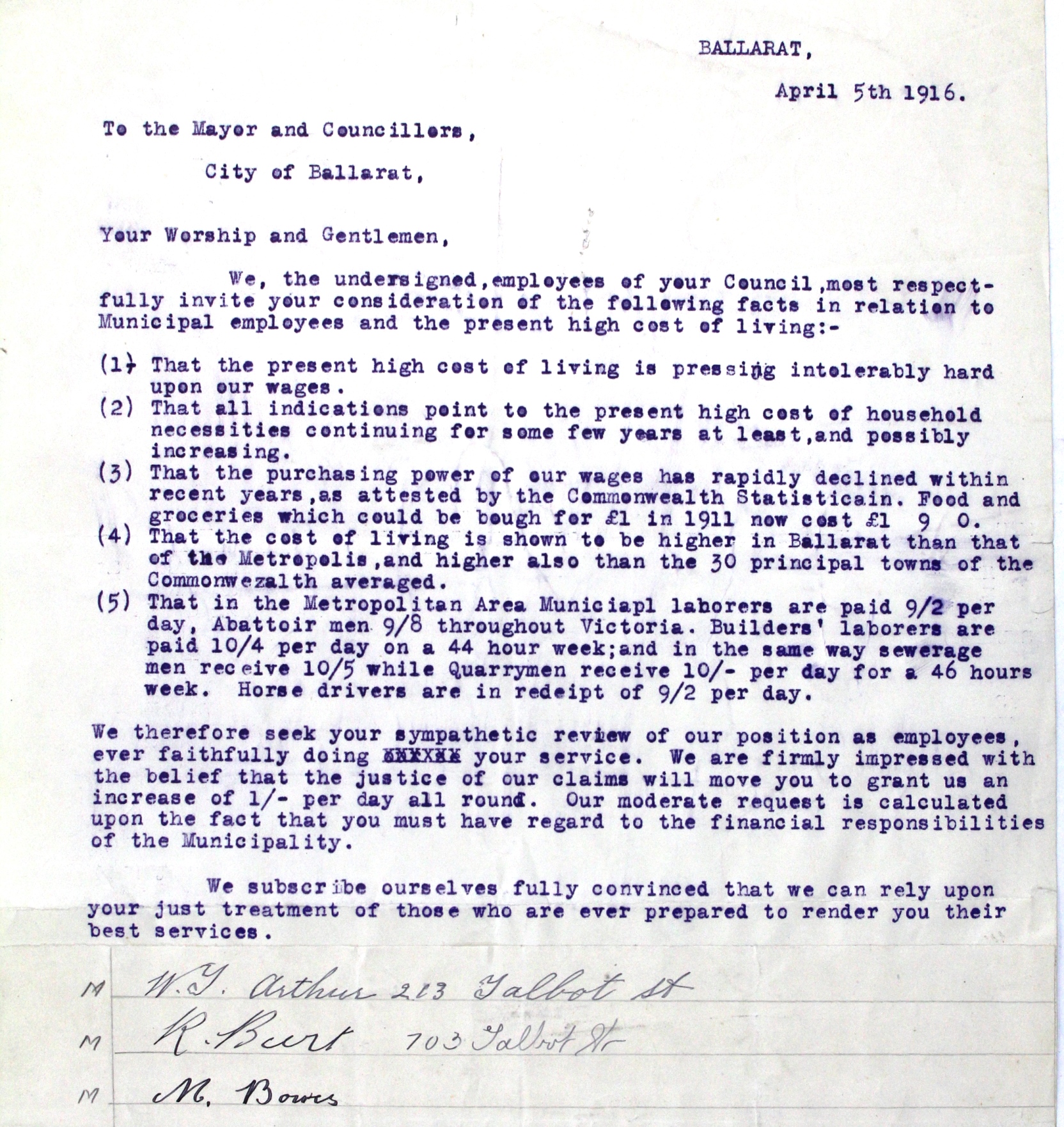
Civil disobedience
The average citizen was unable to afford an automobile in 1916, drays, carts and bicycles were still the primary conveyance for goods and people and traffic infringements were still just as common place then as they are now.
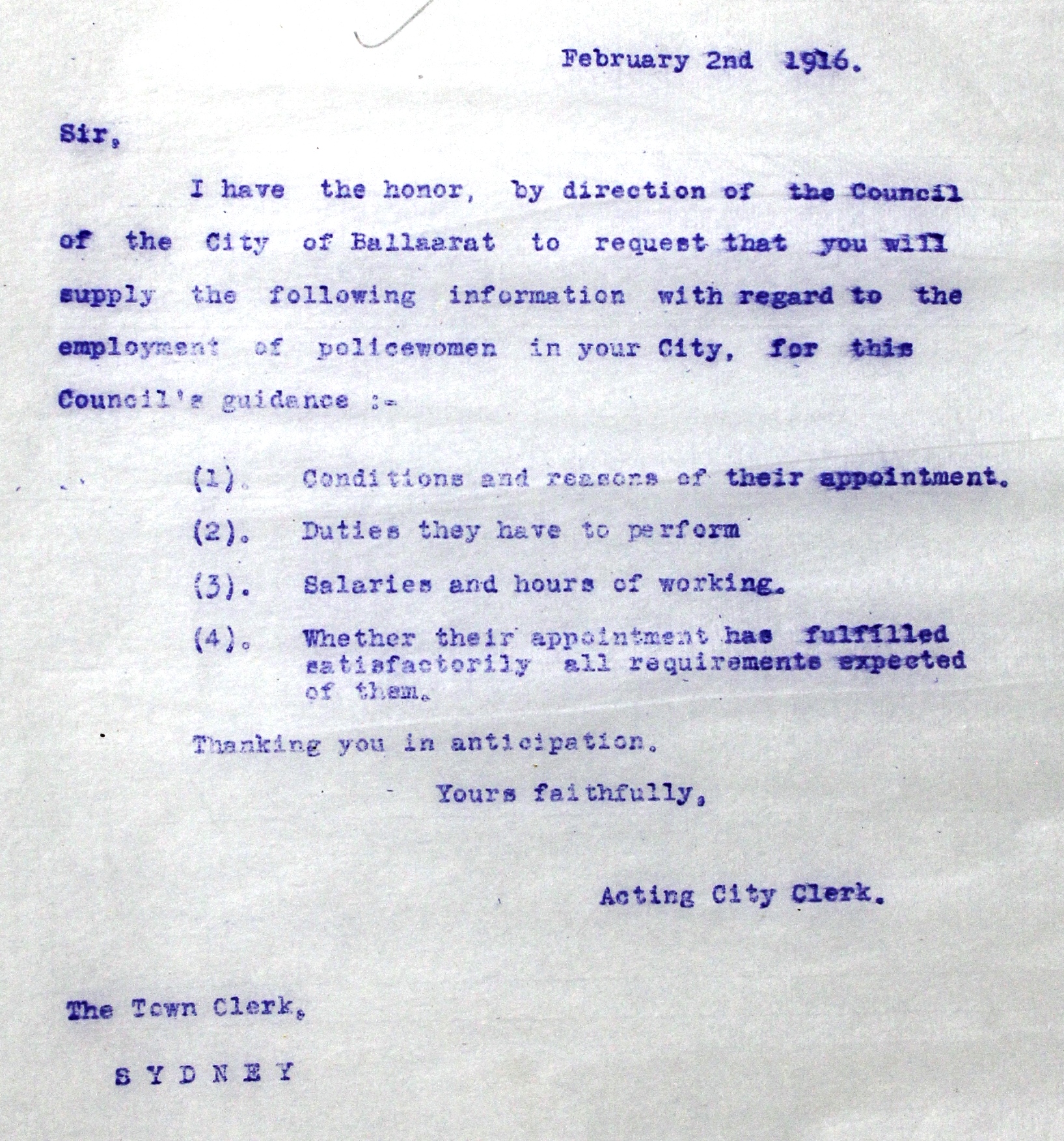
Vandalism and deliberate damage to public property was not uncommon in 1916 and was probably perpertrated, as is a timeless trend, by the disaffected and rebellious youth in an attempt to make their mark in the community.
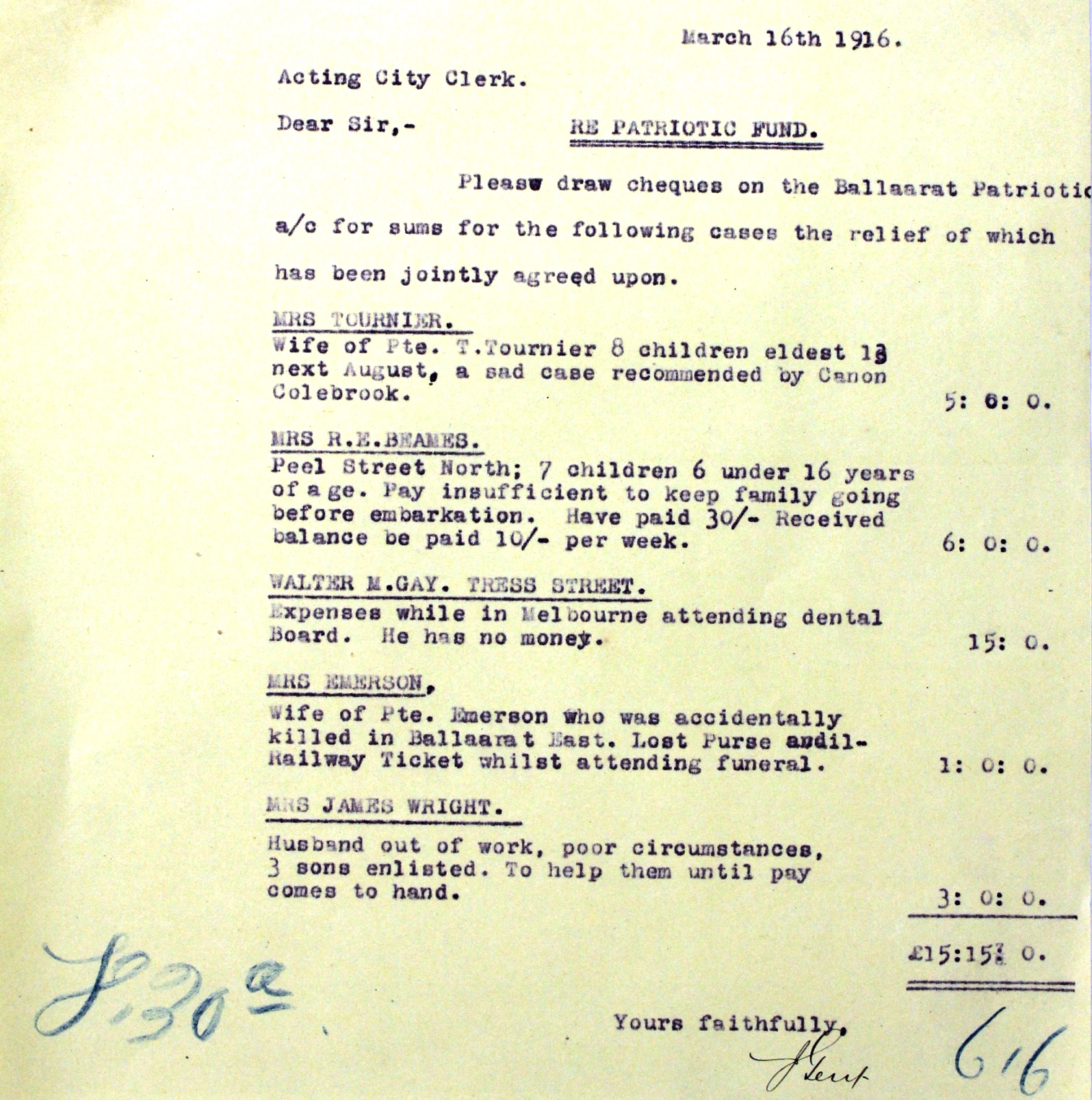

Visitors to Ballarat
Ballarat, well known in many countries throughout the world for its long history of gold mining, continued to draw distinguished visitors to the city in 1916. One such occasion were officers of the Japanese Imperial Navy whose vessels were harboured in Port Phillip Bay while visiting Australia as representatives of Great Britain’s allies during World War I. A very different scenario was to follow in the next few decades during World War II.

Empire Day
Empire Day observed by children in state schools since 1905, was never more important than during the war years. Despite the need for economy and frugality, Empire Day was celebrated with patriotic fervor.
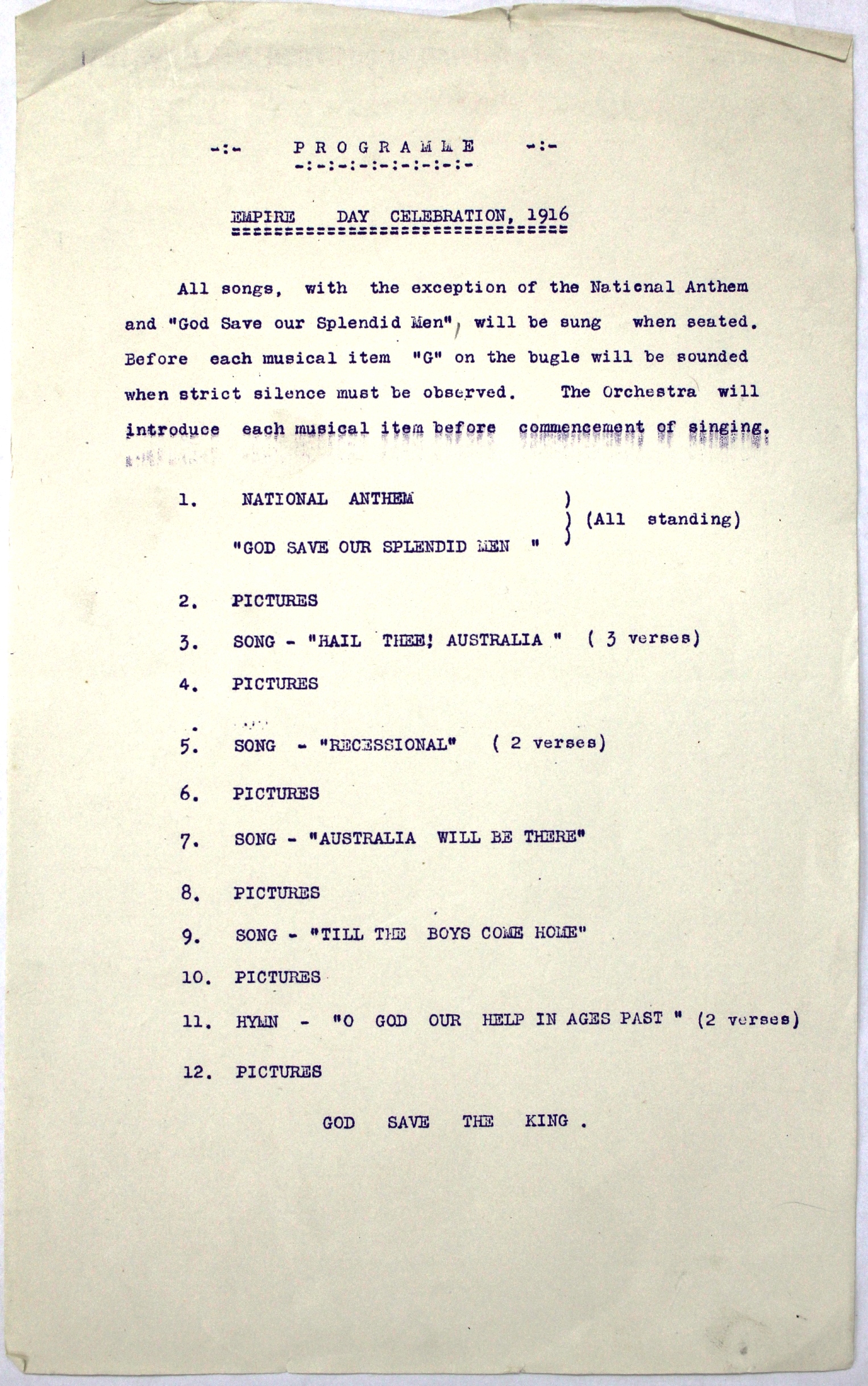
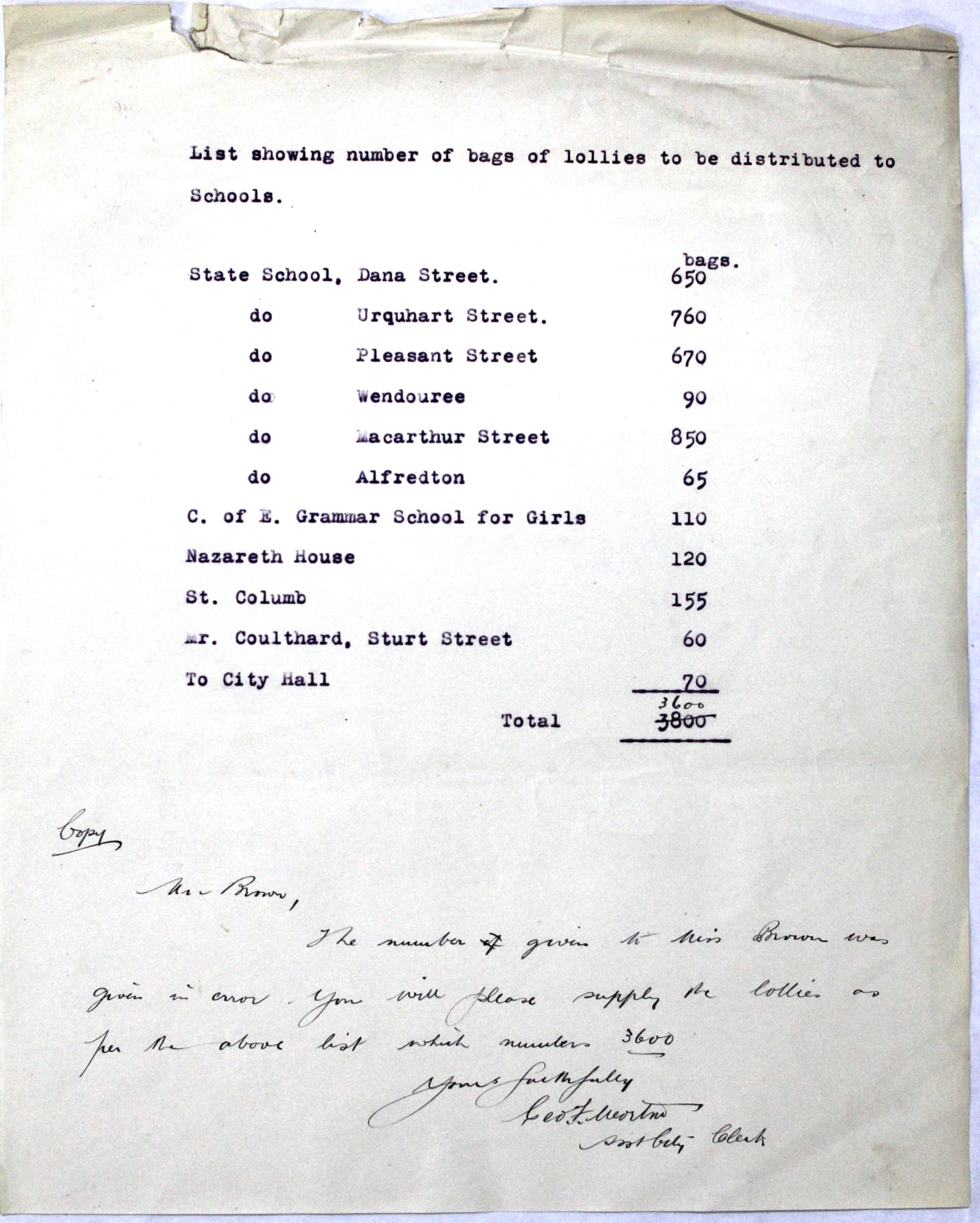
Farewell to the “Ballarat Battalion” and Ballarat in 1916
The 39th Battalion was formed on 21 February 1916 at the Ballarat showgrounds as an expansion of the 1st A.I.F. It was comprised of recruits from Ballarat and many places throughout the western district of Victoria. After rigorous training, both in Australia and overseas, the battalion was sent to the western front where they were to take part in various campaigns resulting in many honours but also many casualties. The unit was ultimately disbanded in 1919 and the remaining personnel gradually returned home.
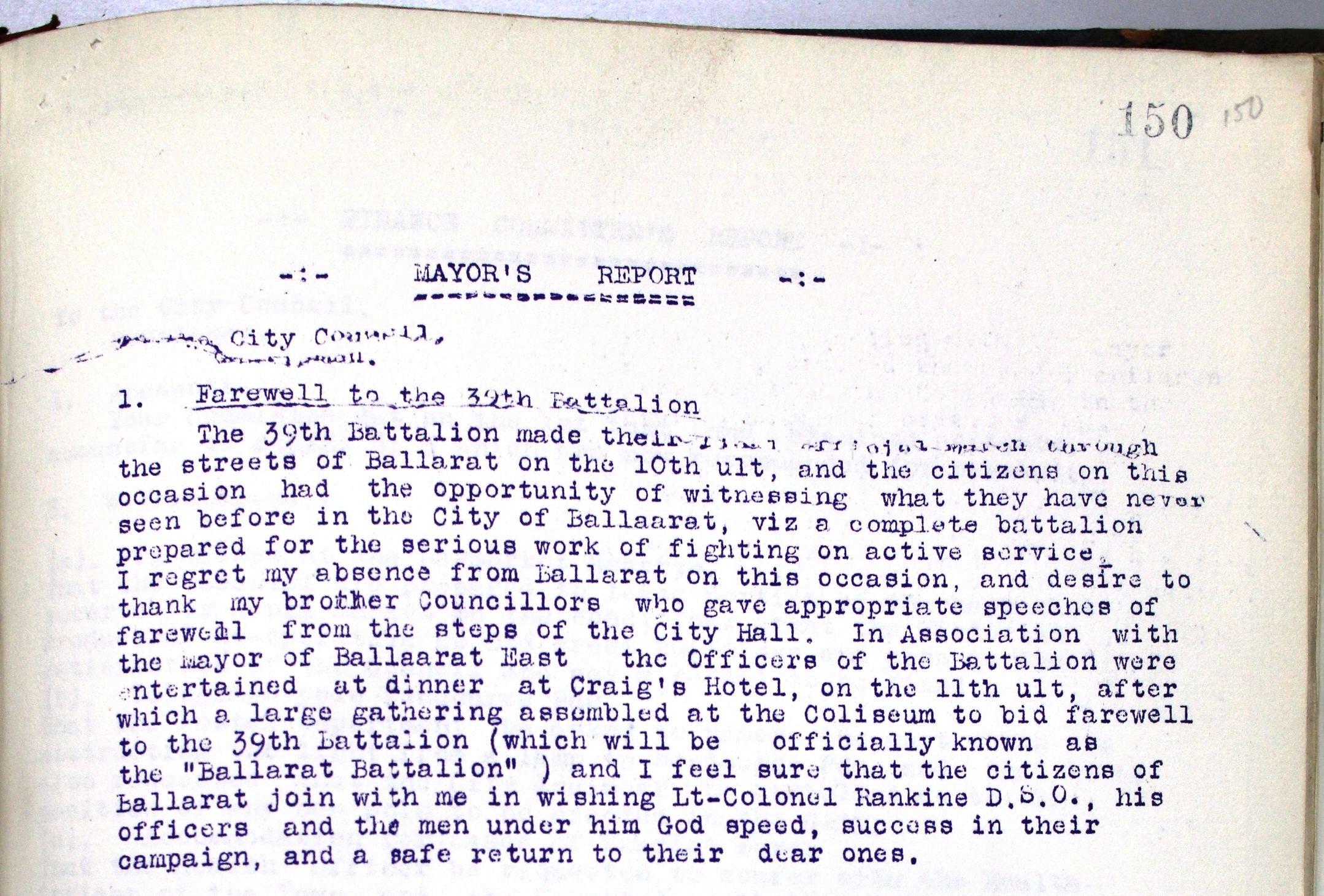
Material in the Public Record Office Victoria archival collection contains words and descriptions that reflect attitudes and government policies at different times which may be insensitive and upsetting
Aboriginal and Torres Strait Islander Peoples should be aware the collection and website may contain images, voices and names of deceased persons.
PROV provides advice to researchers wishing to access, publish or re-use records about Aboriginal Peoples
